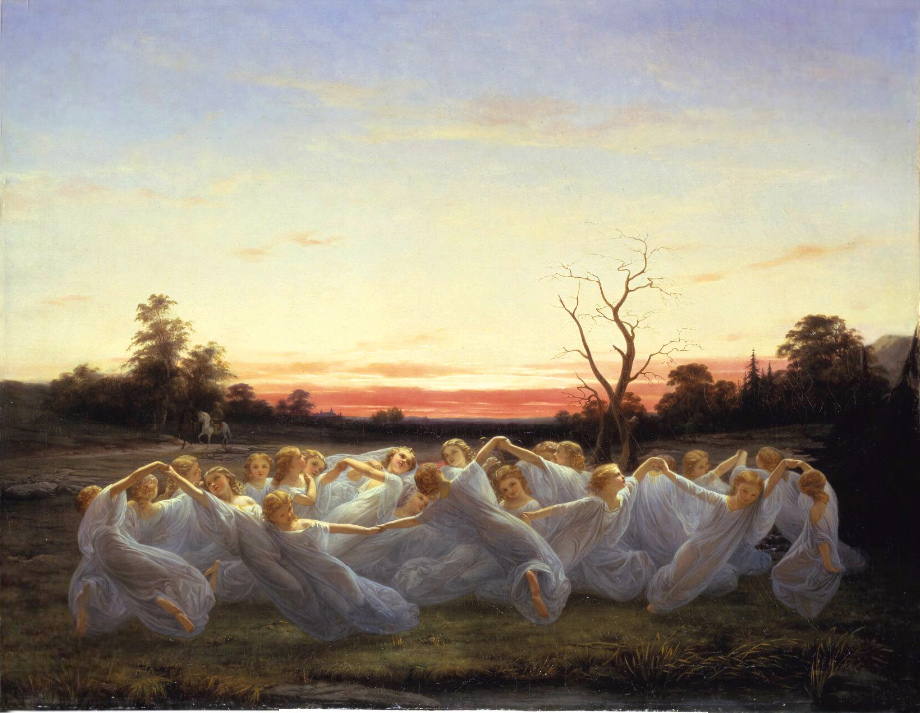Suggested Topics within your search.
Suggested Topics within your search.
Boh a človek
1
Exclude matching results
dejiny Židov
1
Exclude matching results
fenomenológia
1
Exclude matching results
filozofia dejín
1
Exclude matching results
holocaust, 1939-1945
1
Exclude matching results
kresťanské polemiky
1
Exclude matching results
náboženské skúsenosti
1
Exclude matching results
sekularizmus
1
Exclude matching results
židovská teológia
1
Exclude matching results
Elf
 An elf (: elves) is a type of humanoid supernatural being in Germanic folklore. Elves appear especially in North Germanic mythology, being mentioned in the Icelandic ''Poetic Edda'' and the ''Prose Edda''.
An elf (: elves) is a type of humanoid supernatural being in Germanic folklore. Elves appear especially in North Germanic mythology, being mentioned in the Icelandic ''Poetic Edda'' and the ''Prose Edda''.In medieval Germanic-speaking cultures, elves were thought of as beings with magical powers and supernatural beauty, ambivalent towards everyday people and capable of either helping or hindering them. Beliefs varied considerably over time and space and flourished in both pre-Christian and Christian cultures. The word ''elf'' is found throughout the Germanic languages. It seems originally to have meant 'white being'. However, reconstructing the early concept depends largely on texts written by Christians, in Old and Middle English, medieval German, and Old Norse. These associate elves variously with the gods of Norse mythology, with causing illness, with magic, and with beauty and seduction.
After the medieval period, the word ''elf'' became less common throughout the Germanic languages, losing out to terms like ''Zwerg'' ('dwarf') in German and ''huldra'' ('hidden being') in North Germanic languages, and to loan-words like ''fairy'' (borrowed from French). Still, belief in elves persisted in the early modern period, particularly in Scotland and Scandinavia, where elves were thought of as magically powerful people living, usually invisibly, alongside human communities. They continued to be associated with causing illnesses and with sexual threats. For example, several early modern ballads in the British Isles and Scandinavia, originating in the medieval period, describe elves attempting to seduce or abduct human characters.
With modern urbanisation and industrialisation, belief in elves declined rapidly, though Iceland has some claim to continued popular belief. Elves started to be prominent in the literature and art of educated elites from the early modern period onwards. These literary elves were imagined as tiny, playful beings, with William Shakespeare's ''A Midsummer Night's Dream'' a key development of this idea. In the eighteenth century, German Romantic writers were influenced by this notion of the elf, and re-imported the English word ''elf'' into the German language. From the Romantic notion came the elves of modern popular culture. Christmas elves are a relatively recent creation, popularized during the late 19th century in the United States. Elves entered the twentieth-century high fantasy genre in the wake of J. R. R. Tolkien's works; these re-popularised the idea of elves as human-sized and humanlike beings. Elves remain a prominent feature of fantasy media today. Provided by Wikipedia
-
1
-
2
-
3“...Elf Antar France (Courbevoie, FR)...”
Patent -
4“...Elf Atochem S. A. (Puteaux, FR)...”
Patent -
5“...Elf Antar France (Puteaux, FR)...”
Patent -
6
-
7“...Elf Atochem North America, Inc. (Philadelphia, PA, US)...”
Patent -
8